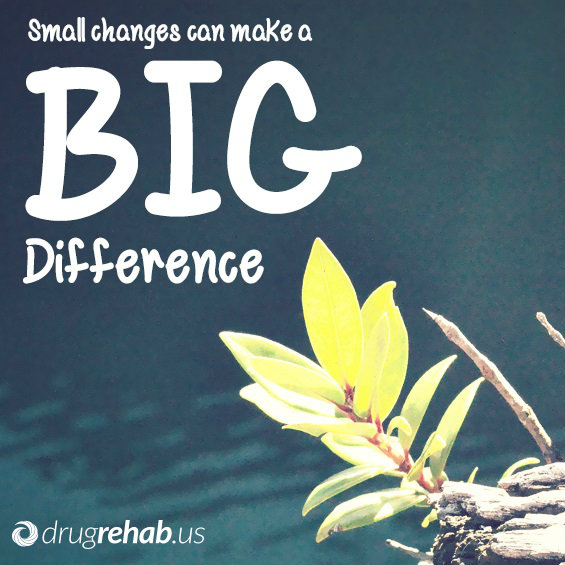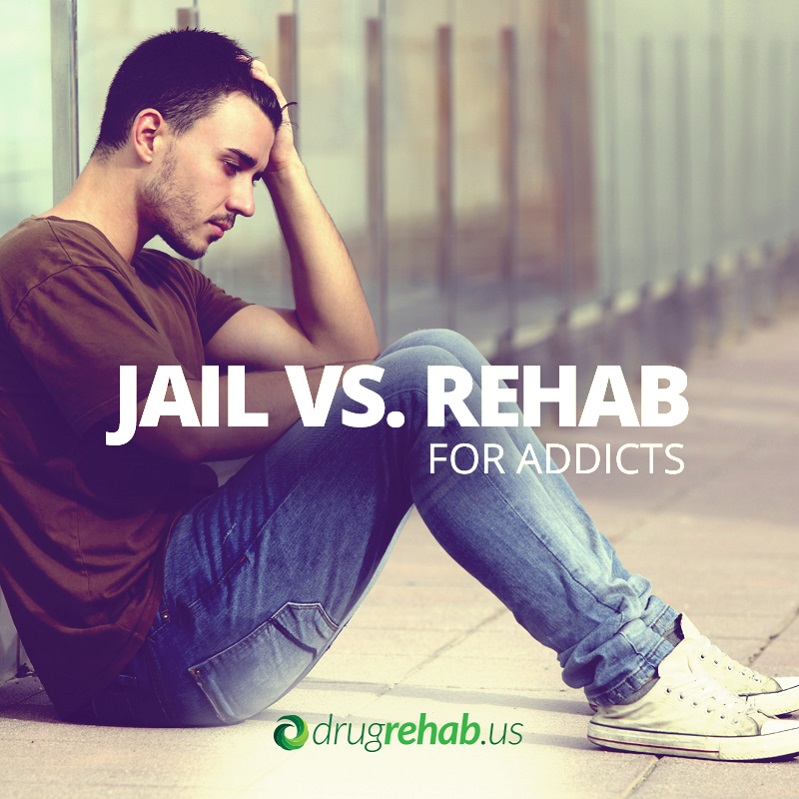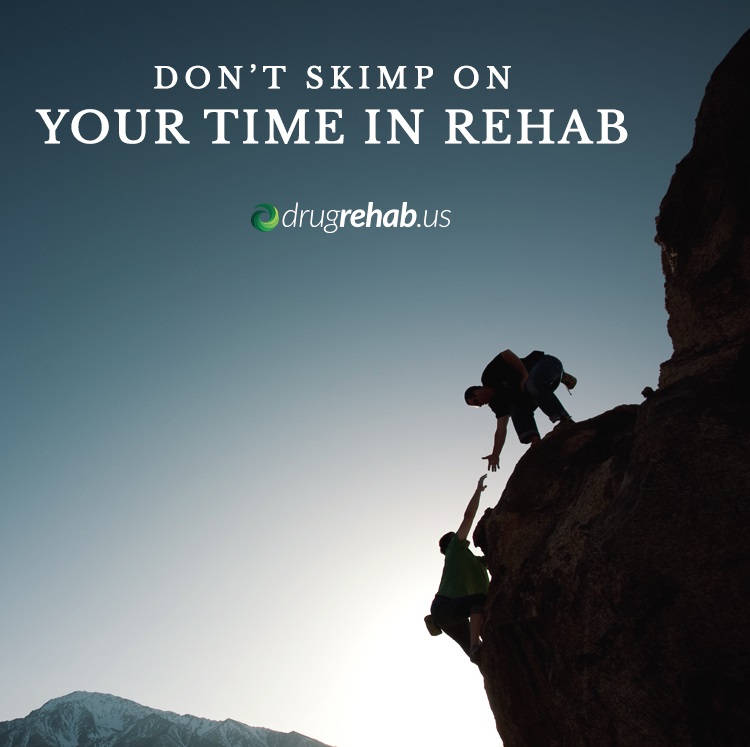07 May 2015
The Truth About Methadone
Methadone maintenance is a treatment strategy for heroin addiction that has been helping people for decades. Methadone, like heroin, is an opioid drug. As such, it can help addicts maintain sobriety from heroin without experiencing the devastating withdrawal symptoms that lead so many back to the drug. Many people misunderstand methadone and believe that it is just another form of drug addiction.
Learn the truth about this effective harm reduction strategy with these methadone myths and facts.
Methadone Myths And Truths
 Myth: Methadone is just a substitute for heroin. Although it is also an opioid, methadone is not a substitute drug. It is a valid medical treatment for heroin addiction. What happens in detox from drugs, particularly from heroin, is withdrawal so terrible that few people can experience it without going back to using. For a drug as serious as heroin, withdrawal and cravings last for a long time. Methadone helps mitigate those symptoms so that addicts can resist the urge to go back to heroin.
Myth: Methadone is just a substitute for heroin. Although it is also an opioid, methadone is not a substitute drug. It is a valid medical treatment for heroin addiction. What happens in detox from drugs, particularly from heroin, is withdrawal so terrible that few people can experience it without going back to using. For a drug as serious as heroin, withdrawal and cravings last for a long time. Methadone helps mitigate those symptoms so that addicts can resist the urge to go back to heroin.
Myth: People using methadone are methadone addicts. Methadone maintenance is a medical treatment, and anyone going through this treatment is doing so under the direction of a doctor. Using methadone in this way does not simply mean that a person’s addiction is transferred from heroin to methadone. While it is accurate to say that a person in treatment is physically dependent on methadone, he is not addicted. He is not experiencing negative consequences from the fact that his body needs the methadone. This is the line between dependence and addiction and between methadone maintenance and heroin addiction.
Myth: Methadone makes you gain weight and rots your bones and teeth. Substance use and abuse cause a number of ill health effects, but the idea that methadone maintenance is bad for your health is not completely true. Methadone can cause dry mouth, which can increase the risk for tooth decay. Proper dental care mitigates this risk. An incorrect dosage can cause bone pain, but it does not cause bone decay. Finally, weight gain can occur with methadone maintenance, but only because getting off heroin means a return to a normal appetite.
Myth: Methadone causes sterility. This is absolutely untrue. It can sometimes lower testosterone in men, but this does not cause a man to be sterile. It can also be diagnosed and easily treated when it does occur.
Myth: Methadone cures heroin addiction. It would be nice if this were true, but in reality there is no cure for any type of addiction. Methadone maintenance is a medical treatment for heroin addiction. Success rates for opiate addiction treatments vary based on the individual, but methadone maintenance works well for many addicts. With this kind of medical treatment as well as therapy and support, many people are able to stay sober.
Methadone often gets a bad rap as a drug used to treat a drug addiction, but the truth is that it has been used for decades because it really does help people addicted to heroin.
Check Out Our Other Informative Addiction Medication Blogs
30 Apr 2015
Will You Be Successful In Drug Rehab?
Admitting that you have a problem with drug use and that you need treatment for it are big steps to take. You should be commended for coming to this realization and for getting out of the shadow of denial. The next logical step is to go through some kind of rehab or treatment for drug addiction. It’s normal if you are feeling worried about it or if you are concerned that you’ll fail. Drug rehab statistics are unclear on how many people are successful on their first try, but the only way you’ll know is if you go through with it.
What Happens In Drug Rehab?
 To give yourself the best chance of success at rehab you need to have a positive attitude and the commitment to do the work needed to get better. It also helps to know what to expect. Every rehab facility is different and has its own policies and treatment methods. To really know what to expect, talk to someone in admissions and ask all the questions you have about what will happen once you get there.
To give yourself the best chance of success at rehab you need to have a positive attitude and the commitment to do the work needed to get better. It also helps to know what to expect. Every rehab facility is different and has its own policies and treatment methods. To really know what to expect, talk to someone in admissions and ask all the questions you have about what will happen once you get there.
In general, you can expect to have to go through detox, although some facilities will require that you do that before entering. You should also have one-on-one counseling sessions, group support and any number of other activities that promote a healthy, drug-free life after rehab. You should also have a treatment plan that is tailored for your particular needs.
How To Do Well In Rehab
Drug rehabilitation statistics show us that no matter how good rehab is, many addicts will relapse afterward. This doesn’t necessarily mean failure. What it means is that addiction is a chronic disease that requires ongoing treatment. Nevertheless, you can make the most of your rehab experience to give yourself the best chance of avoiding a later relapse.
Make a commitment to the process and devote yourself to the work that the professionals ask you to do. When you aren’t sure about a part of the process, ask questions. Open up fully to your therapists and counselors, and also to your fellow patients. Being open will help you heal and help you make new friends. Rely on the support of your family and friends, even if they can’t be in rehab with you. You will need them when you complete your program.
What About Outpatient Treatment?
Rehab is not the only option for drug addiction treatment. If your life circumstances don’t allow you to spend weeks or months in a rehab facility, you can get treatment that works with your schedule and that allows you to stay home. Statistics for outpatient drug rehab success rates are minimal, but it does work for many people. One benefit is that you can stay with a friend or with family members who care about you and support you.
Whatever kind of treatment you choose for your addiction, the important thing is that you get care. No one can battle addiction alone, and the only way to be successful at being sober is to get the help you need and to ask for support when you need it.
Believe In Yourself. Remember…Small Changes Can Make A Big Difference!
Any drug court that hopes to obtain federal funding will have to allow addicts access to drug replacement therapies for heroin and prescription opioid addiction, the U.S. government has ruled.
Treatment programs that practice abstinence-only therapies will still remain perfectly acceptable in most cases, but when doctors recommend drug maintenance as the best alternative for individual defendants, drug court judges will have to respect that opinion.
Changes In Addiction Rehab Policy
These changes in existing policy were announced in February by Michael Botticelli, director of the White House Office of National Drug Control Policy. Previously it had been left to the discretion of drug court judges to decide which types of rehabilitation and treatment were appropriate, and these institutions have a long history of rejecting drug replacement strategies. In Kentucky, there are signs posted outside drug courts instructing defendants in methadone or Suboxone maintenance programs to wean themselves off of these drugs before their court dates if they want to avoid being sent to prison.
Maintenance Programs More Effective Than Conventional Abstinence-Based Programs?
But the latest evidence strongly suggests drug maintenance programs, particularly those that rely on Suboxone as a replacement drug, are extremely useful and do an excellent job of helping opioid addicts stay away from the substances that endanger their lives. Abstinence-based treatments in general are more effective against alcoholism than against heroin and OxyContin addiction, which cause changes in the brain that can be incredibly difficult to overcome when relying on willpower alone.
 Studies show more than 90 percent of heroin and opioid painkiller addicts will relapse back into drug use within a year of conventional rehabilitation, with the majority dropping out of treatment programs before reaching the end. In some cases, this may show a lack of commitment, but it is still data that treatment centers cannot afford to ignore.
Studies show more than 90 percent of heroin and opioid painkiller addicts will relapse back into drug use within a year of conventional rehabilitation, with the majority dropping out of treatment programs before reaching the end. In some cases, this may show a lack of commitment, but it is still data that treatment centers cannot afford to ignore.
Even outside structured treatment programs, Suboxone is extremely popular with opioid addicts, so much so that a thriving underground market for the drug exists among those looking to self-medicate themselves out of their drug habits. But only 2.5 percent of physicians across the United States have gone through the certification process necessary to prescribe this maintenance medication, helping to repress the availability of the drug.
Most physicians and treatment experts don’t recommend Suboxone or methadone maintenance therapy for opioid addicts, preferring to stick with what they see as the tried-and-true methods of abstinence and the drug-free lifestyle. Substitution drugs go against the grain, maintaining a state of addiction despite their abilities to decrease cravings and reduce the opioid high.
But plenty of studies have verified the relative safety of drug maintenance therapy. At the present time, prescription opioid painkillers plus heroin overdose take the lives of about 25,000 Americans each and every year, and the number of victims has increased exponentially over the last 10 to 15 years. Relapse following unsuccessful treatment is a common killer in these cases, because opioid addicts who go back to using after a period of abstinence have reduced tolerance for drugs and can overdose easily if they take the same dosages they did in the past.
Benefits Of Drug Maintenance Therapies
The reliance of drug courts on abstinence-based rehabilitation is understandable, given the fact that drug maintenance therapy does replace one type of opioid addiction with another. But having one addiction kill the other can play a constructive healing role for desperate individuals who lack the capacity to beat their drug dependencies without extra help.
Willpower is an important part of any addiction recovery regime, and all addicts who plan to get better must make a determined effort to overcome the brain disease that plagues them. Opioid addicts undergo significant neurological changes that won’t go away overnight, however, and that is why drug maintenance can help bridge the gap between dependency and recovery.
Ideally, addicts who use methadone or Suboxone will eventually be able to wean themselves off of these substances under medical supervision. But until they do, these drugs can keep them alive, still in a position to win a battle against addiction that can so easily end in tragedy if intervention is unsuccessful.
Drug courts can provide a route to recovery for addicts only if they remain open to all possibilities, including those that may seem a bit outside the box. The new federal government policy may force their hand to a certain extent, but is will also help raise the consciousness of drug court judges who have a responsibility to keep up with the times.
Read Our Latest News Blogs
05 Mar 2015
Should I Go Back To Rehab?
Relapses are common for anyone struggling with a chronic disease, whether it is diabetes, high blood pressure, addiction or any other. By definition, a chronic illness is one that can’t be cured and requires continuous treatment. Not keeping up with treatment means risking a relapse. As an addict, this doesn’t mean that you always have to be in intensive therapy, but you need to be aware of your feelings, your moods and your cravings and up your treatment as necessary.
Factors To Consider When Deciding If You Should Go Back To Rehab
Whether you need to return to rehab after a relapse is a personal choice, but there are several factors anyone should consider.
Can You Afford Rehab?
 In a perfect world, your health care needs would come first and all other considerations would be secondary. The truth is you have to think about practical issues. Rehab isn’t like going to the doctor for a checkup or to change your prescription. It means taking time from work and family to spend weeks or months in a facility working on just you and your illness. Look at your finances, your health insurance if you have it, your job situation, and talk to your family. From this information you can determine if you can practically afford rehab for a second or third time.
In a perfect world, your health care needs would come first and all other considerations would be secondary. The truth is you have to think about practical issues. Rehab isn’t like going to the doctor for a checkup or to change your prescription. It means taking time from work and family to spend weeks or months in a facility working on just you and your illness. Look at your finances, your health insurance if you have it, your job situation, and talk to your family. From this information you can determine if you can practically afford rehab for a second or third time.
Consider Your Rehab Options
Another thing to think about is where you would go if you returned for another stay in rehab. Did you like the facility you went to previously? Was it helpful, or did you feel like you could have chosen better? Rehab can become a revolving door in a worst-case scenario with an addict going back again and again. There are many reasons this happens. Sometimes it is simply the nature of the disease, or the addict is not ready to give up drugs yet. In some cases it’s the facility that isn’t caring for patients well enough. Give careful thought to whether you would return to the same rehab program or try a new one before you make a choice.
Listen To Others
Sometimes the people around you are better able to judge your situation and your needs than you are. Listen to the people who care about you and who have been around you long enough to know when you need serious help and when you can pull through with their support. Also, listen to any health professionals with whom you are working at the moment. If you have been doing regular therapy sessions, talk to your therapist about it. If you have a sponsor, talk to her.
Get Some Kind Of Help
You may choose to go back to rehab or not, but whatever you decide, make sure that you do get help. A relapse can be serious and it can put you back on a dangerous path that you have worked hard to get away from. If you don’t want to or can’t go back to rehab, consider starting up some therapy sessions or increasing their frequency if you already work with a therapist from time to time. You can also turn to support groups. Join one if you haven’t already, or go back to attending meetings if you stopped.
The important thing after a relapse is to do something. Don’t just let it go and hope it was a one-time slip. Take it seriously. Talk to friends and family. Talk to a therapist. Reflect on your feelings and your sense of whether you can stop here or if you will keep using. Consider your options and then make a choice.
Find A Drug And Alcohol Rehab Facility Near You Now!
Long-Term Recovery Is Possible! Believe In Yourself – We Do!
No one would have ever expected anything but success out of Liam. He was born to a charmed, wealthy family and had been its shining jewel. An all-star athlete and honors student, he’d attended Stanford University School of Medicine, with every intention of becoming the neurosurgeon he vowed he’d become at only 17. But a skiing accident changed everything for Liam; he’d been accelerating down a black diamond when a less skilled skier collided with him, injuring his lumbar. The back pain and medical treatments, including two surgeries, entailed the use of opioid painkillers in order to get Liam through the day.
Without his steady hand and laser focus, or an ability to stand comfortably for hours on end, his dream of operating fell away. And without an ability to be active in the same ways he had been—Liam had been something of a fitness nut before his injuries—he grew depressed. Soon enough, he realized he’d developed a problem with his pain medication; he had become dependent.
When You Become Addicted To The Treatment
 Liam was still seeking a residency (he would be a neurologist rather than a neurosurgeon), and knew that an addiction could drastically complicate his hopes. He’d heard plenty about compromised doctors and nurses who’d been arrested while abusing hospital medications, or injuring patients while high. He didn’t want to become a shameful statistic. So he sought treatment through a private referral. He would take Suboxone, or buprenorphine, an opioid pain reliever also used for long-term treatment of opioid addiction.
Liam was still seeking a residency (he would be a neurologist rather than a neurosurgeon), and knew that an addiction could drastically complicate his hopes. He’d heard plenty about compromised doctors and nurses who’d been arrested while abusing hospital medications, or injuring patients while high. He didn’t want to become a shameful statistic. So he sought treatment through a private referral. He would take Suboxone, or buprenorphine, an opioid pain reliever also used for long-term treatment of opioid addiction.
In the beginning, the buprenorphine worked well, but Liam discovered that the benzodiazepine he’d been prescribed for anxiety relating to his crash and the stress it had caused, when combined with the Suboxone, created something of a high. His habit-seeking behaviors began again in earnest. The Suboxone was no longer serving him as treatment for dependence. He was addicted to the treatment itself.
Opioid Addicts In Need Of Treatment
Buprenorphine, sold as Suboxone or Subutex, was approved by the FDA in 2002 for the treatment of opioid addiction in the U.S. Buprenorphine is prescribed by limited approved doctors as a sublingual (under-the-tongue) treatment for moderate pain and for long-term treatment of opioid addiction to suppress the symptoms of withdrawal and to reduce cravings. While it does not cause euphoria in opioid-dependent patients (and blocks the effects of other opioids for at least 24 hours), it can create euphoria and subsequent dependence in individuals who are not previously dependent on opioids. And while it is considered safer than methadone treatment, individual users still find ways to achieve a high (with combination benzodiazepines in some instances), making them more likely to remain drug dependent and less likely to recover.
From a New York Times piece in November, 2013: “Suboxone is the blockbuster drug most people have never heard of. Surpassing well-known medications like Viagra and Adderall, it generated $1.55 billion in United States sales last year, its success fueled by an exploding opioid abuse epidemic and the embrace of federal officials who helped finance its development and promoted it as a safer, less stigmatized alternative to methadone.”
Questioning Safety With Suboxone
In the realm of addiction, there are (many) dragons. Buprenorphine may, in fact, be doing more good than harm, and until statistical evidence reveals otherwise, a story like Liam’s may be purely anecdotal. There are others like him, but their numbers may stack up only so high compared to the numbers of individuals who are being helped by treatments like Suboxone. Opioids, it appears, create one of the hardest addictions to quit, and those who suffer may need all the help they can get.
Still, it’s wise to bear in mind that crossover addiction—the exchange of one addiction for another—is nearly universal in the addiction community. If an addict drops one addiction, he picks up another. With maintenance treatments like methadone and buprenorphine, the crossover addiction may become a case of choosing between the lesser of evils—and surely Suboxone treatment is a lesser evil than previous painkiller addictions.
If You Are Struggling With Opioid Abuse Or Addiction, It’s Time To Step Up And Make The Call…It Could Change Your Life!
29 Jan 2015
Healing From Depression In Recovery
Depression and addiction as co-existing disorders isn’t uncommon. If you’ve gone through rehab and addiction treatment and are now successfully in recovery, you’ve done some very difficult work to get better.
What if you now feel depressed? If you do, you’re far from alone. Nearly 9 million people struggle with both addiction and a mental illness. Any mental illness can co-occur with addiction, but depression is common.
Learning To Heal From Depression In Recovery
If you did your hard work in rehab and are now struggling with depression, you’re at greater risk of relapsing. Learn to heal from your depression so you don’t return to substance abuse and so you can live an enjoyable life.
Getting Diagnosis And Treatment
 The most important thing you can do now is to see a professional for a diagnosis. A mental health professional can tell you if you have clinical depression or if you are battling a normal and expected bout of depression after drug or alcohol addiction. Either way, getting treatment will help. Treatment for depression usually involves psychotherapy, cognitive behavioral therapy, group therapy, medication or some combination of these methods.
The most important thing you can do now is to see a professional for a diagnosis. A mental health professional can tell you if you have clinical depression or if you are battling a normal and expected bout of depression after drug or alcohol addiction. Either way, getting treatment will help. Treatment for depression usually involves psychotherapy, cognitive behavioral therapy, group therapy, medication or some combination of these methods.
Therapy can help you learn to recognize signs of depression and negative thoughts while also learning how to change them. Medication is a type of treatment that works for many people struggling with depression. However, as an addict in recovery you may not be comfortable taking a medication. That is a personal choice and one you should make with the advice of your doctor and therapist.
Positive Lifestyle Changes
While professional help is important in guiding you through post-rehab depression, you can also make positive changes that will improve your mood. None of these should be considered a substitution for professional care, but they can be used to supplement your treatment:
- Exercise – One important thing to do is to start exercising and eating well. Being in good physical condition will go a long way toward improving your mood. Furthermore, exercise is known to lift the mood immediately. If you feel like you can barely get out of bed in the mornings, the idea of exercise may be daunting. Start small with a short walk each day and see how it makes you feel.
- Be social – Another important way to battle depression is to be social. Spend quality time with people you enjoy. You don’t have to have a lot of friends or go to parties to be social and to benefit from socializing. Having a cup of coffee with a good friend or dinner with your family are great ways to feel better about your life. Social support is crucial to both sobriety and mood.
- Make life meaningful – Develop meaningful activities in your life. For people in recovery, sobriety often feels like a big gaping hole. You spent so much time and energy using, you may now feel lost. Fill up that hole with activities that are healthful and meaningful. Work at a job you enjoy. Do volunteer work. Take up a creative hobby like painting or writing. Adopt a dog or cat from a shelter and learn to take care of it. All of these things are meaningful and special and will make your life feel worthwhile.
Caring And Effective Depression Treatment Is Available
Depression is a serious mental illness, and it can take over your life if you do not challenge it. As an addict in recovery, you face additional challenges. If you just can’t shake your feelings of depression no matter what lifestyle changes you make, be sure to seek professional help. Depression is treatable and you don’t have to suffer.
Call Us Now For Mental Health Or Addiction Help – We Are Here For You Because You’re Worth It!…Always!
15 Dec 2014
Jail vs. Rehab For Addicts
Millions of drug addicts are jailed every year in the U.S. In many of these cases, they are sentenced to jail time because of minor crimes such as possession or a third strike. Rehab vs. jail is an old debate, but one that is shifting. While the old way has been to jail addicts because they have committed crimes, advocates for addicts are changing attitudes. Jail is not a valid form of rehab and it should stop being used as such. Addicts do not come out of jail cured simply because access to drugs was restricted or cut off; it’s time to start getting addicts the help they truly need.
Can Jail Be Rehab?
 Philosophies of addiction treatment have long been punitive. Even with addicts who are not in trouble with the law, mainstream addiction care has often used punishment and tough love as a way to treat patients. This idea comes from a deep-seated belief that addiction is a moral failure and a personal weakness; that addicts have done something wrong because of an internal flaw and punishment is the way to correct it. This attitude is old and it is changing, but it still largely prevalent.
Philosophies of addiction treatment have long been punitive. Even with addicts who are not in trouble with the law, mainstream addiction care has often used punishment and tough love as a way to treat patients. This idea comes from a deep-seated belief that addiction is a moral failure and a personal weakness; that addicts have done something wrong because of an internal flaw and punishment is the way to correct it. This attitude is old and it is changing, but it still largely prevalent.
Because of this dated attitude, many addicts are sentenced to jail time instead of treatment in a rehab facility. Drug rehabilitation statistics refute this practice. Jail might work as effective rehab for a handful of addicts, but for most it simply doesn’t help. When a drug addict leaves prison, he is likely to start using again. Unless a jail or prison has a dedicated drug addiction treatment program, addicts will not be well served by spending time there.
Addicts Need Effective Treatment
No one would suggest that there should be no consequences for drug crimes, but jail time is not the most effective way to punish and rehabilitate addicts. Those convicted of minor and non-violent crimes could be sentenced to time spent in a treatment facility instead of prison. This would allow addicts to get the help they desperately need and would help them transform back to productive members of society who will be unlikely to break laws again.
One of the pros of recreational marijuana legalization that has recently been seen in Colorado and Washington is fewer drug users going to jail for minor crimes. There are a lot of real downsides to legalizing this drug, including possibly increased addiction rates, but if it means clearing prisons of non-violent drug offenders, it would be one positive outcome.
The debate over rehab vs. jail is one that should be officially closed. We know that prison time does not treat addicts and that no one is served well by jails overcrowded with minor offenders. Everyone would benefit, taxpayers and drug addicts alike, if we could send non-violent drug offenders to facilities for effective treatment.
Find Out For Yourself Or A Loved-One Which Therapy Will Work Best In – What Kind Of Addiction Therapy Do You Need? – And Break Free From Addiction Today!
01 Dec 2014
Don’t Skimp On Your Time In Rehab
Getting treatment for drug addiction is the only way to heal from this terrible disease. If you or a loved one is struggling with drug abuse, treatment guided by caring professionals is essential.
 It is also important to understand that the disease of addiction is chronic. Like other chronic diseases, high blood pressure and diabetes for instance, addiction needs continuous treatment over a lifetime. You can never be cured of your addiction, but you can learn to manage it.
It is also important to understand that the disease of addiction is chronic. Like other chronic diseases, high blood pressure and diabetes for instance, addiction needs continuous treatment over a lifetime. You can never be cured of your addiction, but you can learn to manage it.
If you are thinking of going to rehab, know that the time you spend there will set you on your path to lifelong sobriety. It is important to spend enough time during this initial phase of treatment learning how to live a sober life.
Whatever you do, don’t skimp on your time spent in a good and caring rehab facility. Research shows that the best outcomes result from at least 90 days spent in residential or intensive outpatient care.
Why You Should Consider A Long Stint In Rehab
Here are several reasons you should consider a long stint in a good rehab in order to heal:
- Get past detox – Detox, that time when drugs leave your system and you get beyond withdrawal, can last longer than you think. Detox is important, but by the time it’s done, you may find you have limited time to work on actual treatment if your stay in rehab is only 30 days. Going through detox is hard, but it isn’t the part of rehab that helps you learn to be sober.
- Learn new habits –Your addiction is a habit. Your brain has learned a habit of regular drug use. In order to change those habits and learn new ones, you need time. You are going to rehab to learn how to have an entirely new lifestyle. You must take your time on this or your new healthy habits will not take root.
- Heal your brain – Your drug use has caused actual changes in your brain. It is possible to reverse those changes, but it takes time. Research has shown that in brain scans of patients receiving treatment, positive changes are still occurring up to three months after starting treatment.
- Work on relationships – The main goal of rehab is to heal and to overcome your addiction, but there are many other things to work on if you have the time. Your addiction has probably wrecked several of your relationships, for instance. If you spend enough time in rehab, you can work on repairing those.
- Treat mental disorders – Many people who struggle with addiction are also battling mental illness, whether they know it or not. Spending enough time in rehab will give your treatment professionals a chance to diagnose and treat any co-occurring disorders. When you recognize and treat mental illness you have a better chance at being successful at sobriety and living a more enjoyable life.
- Step down treatment – If you can afford the time to do so, your rehab should be followed by a step down in care. This means going from residential rehab to a sober living house or to intensive outpatient care. Doing so allows you to begin to practice your new habits and skills while still having the support and treatment of caring professionals. Going cold turkey from rehab to real life can be a shock and may lead to relapse.
Long-Term Rehab For Life-Long Sobriety
Rehab is an important step toward becoming sober and you should not skimp on it. If you are able to take the time away from work and family, spend as much time in rehab and step down treatments as necessary to help you be successful in your new, sober lifestyle.
Discover How To Choose The Right Drug Rehab For Yourself Or Your Loved One!


